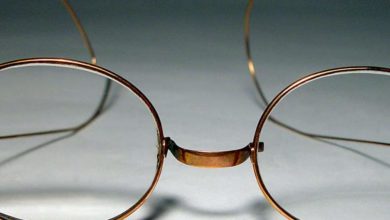As a premed, you may get various advice from counselors, friends, family, websites or anybody else who is willing to help you. But how do you know what is true or not? Here is a list of pre-med myths that should be clarified.
You’re a freshman in college and you decided to pursue medicine as a career. But you have absolutely no idea how to go about doing it. Then an older friend (let’s just say he is a junior) who is also premed takes you under his or her wing and starts to teach you about being premed. Little do you know that he has absolutely no idea what he is doing either. He is leading you astray. How do you avoid this? How do you know what advice to follow and what to ignore?
Here is a comprehensive list of common premed myths:
*The facts stated below are specifically meant for U.S. allopathic medical schools
Pre-Med Myth 1: Freshman year grades do not matter
Fact: The grades from any post-high school institution matter when you apply to medical school. That means even if you took community college courses in high school, you will have to submit those transcripts when you apply. The Association of American Medical Colleges (AAMC) lists your GPA’s in this order:
1. College courses taken during high school
2. College (each year is listed separately)
3. Postbaccalaureate Undergraduate
4. Cumulative Undergraduate
5. Graduate
Your grades from any of these levels of education, if taken prior to applying, will be counted towards your GPA. So yes, your freshman-year grades do matter.
||Read: Overall and BCPM GPA||
Pre-Med Myth 2: A high MCAT score will make up for my low GPA, or vice versa.
Fact: This myth is true at a certain level but only in extreme cases. For example, a student who has a 3.4 GPA (which would be considered a low GPA by premed standards) but a 519 MCAT has a decent chance of getting into an allopathic medical school. That is mainly because a 3.4 is not a terrible GPA and 519 is in the 99th percentile and only 0.4% of test takers achieve that score. Nevertheless, for the majority of people, a high MCAT score (514-518) will not make up for an abysmal GPA (for premeds, this would be anything below 3.2). For example, if your GPA is a 3.0, even a 517 will not mean very much to admissions committees. Lastly, if you’re a B-average student, what evidence is there that you will do extremely well on the MCAT? There are probably very few people who can pull that off.
On the flip side, having a high GPA does not make up for a low MCAT. For example, even if you have a 4.0 GPA, if your MCAT score is 492, you will have a very difficult time getting into a school. Admissions committees always look at GPA and MCAT together. Course difficulty varies by institution, but the MCAT is the equalizer. That is why medical schools want students who can do well both in the classroom and on the MCAT.
Pre-Med Myth 3: I can retake a class and medical schools will only see the newer grade.
Fact: For all medical schools under the AAMC (which is almost all MD medical schools), All classes taken for a letter grade will be counted in the GPA that medical schools will see. For example, if you received an F in organic chemistry and then retook it and got an A, medical schools will count both the F and the A into your final GPA.
||Read: FAQs on applying to medical school||
Pre-Med Myth 4: I can take my pre-requisite courses abroad.
Fact: You need to take your pre-requisite classes at an accredited U.S. or Canadian college or university. Medical schools do not accept premedical classes taken abroad, especially because those classes are usually taken in series.
Pre-Med Myth 5: I should just take my pre-requisite courses at my local community college because they are too hard at my university
Fact: Medical school admissions committees are fully aware of this strategy and do not look favorably upon it. If you are a life science major at a university, this is usually not possible because you would need to take required classes at your own university in order to graduate. If you are a non-science major, however, especially if you have already graduated and decided to pursue medicine after graduating, this could be done more easily with fewer questions asked.
Pre-Med Myth 6: I just got a C in a class. I should give up my dreams of becoming a doctor.
Fact: One bad grade does not ruin your chances at becoming a doctor. Unfortunately, many bad grades do. As long as the bad grade is a deviation rather than the norm, you can still have a very competitive GPA with a C or below on your transcript.
||Read Dropping Premed Because of One Bad Semester||
Pre-Med Myth 7: Medical schools will cut me slack if I have a lower GPA because I’m in a harder major.
Fact: Your major is your choice and medical schools really do not show much sympathy when it comes to your GPA. This is usually the reason why it is not a good idea to be an engineering major while pursuing medical school. You might be given a little leeway (0.1 to 0.3 grade points), but at the end of the day, a hard major does not excuse poor grades.
||Read: Does Undergraduate Reputation Matter For Admissions?||
Pre-Med Myth 8: Admissions committees will think I’m a quitter if I drop classes.
Fact: Having a few dropped classes on your transcript is fine. Special circumstances that require you to drop a class can always occur. Nevertheless, you cannot make dropping classes a norm.
Pre-Med Myth 9: If I take a lot of classes in one term and do poorly, admissions committees will show me mercy because I took a heavy load.
Fact: Once again, medical schools show little mercy when it comes to poor grades. If you did poorly simply because you took too many classes, that is your fault. You need to be wise about how much work you can handle.
Pre-Med Myth 10: Having a double major will give me an advantage over other applicants.
||Read: What is the Best Major For Premeds?||
Fact: A second major by itself does nothing to improve your chances over other applicants. Sometimes it can even be detrimental because trying to finish two majors may take a toll on your GPA. However, if you can maintain a high GPA and both your majors significantly tie into your application story, that might help you stand out.
Pre-Med Myth 11: I need to finish every premed pre-requisite course before I apply to medical school.
Fact: Some premeds overload their schedule in their first two years of college because they think they need to finish all their prerequisites before applying to medical school. As a result, their GPAs tend to suffer. There is no rush to finish all your premed requirements. As long as you have the majority of them done when you are apply and are planning to finish to the rest before you start medical school, you will be fine.
Read: Premed Myths Part 2
Pre-Med Myth 12: I need to finish all my pre-requisite classes before I take the MCAT.
Fact: Although it does help to have all your pre-requisite classes done before you take the MCAT, you can still do well on the MCAT without having completed those courses. The college courses will tend to teach much more than what you will need to know on the MCAT. You can master the MCAT material by using MCAT study books.
Pre-Med Myth 13: I’m at a very prestigious university so it’s fine if my GPA/MCAT is a little lower.
Fact: It is probably more impressive if you have a 3.8 from an Ivy League school versus a 3.8 at a community college, but a good GPA is a good GPA regardless of where you go. And a 3.0 at Harvard is still a 3.0. An MCAT score of 501 from a Harvard undergrad is still a 501. You might have a little more of a GPA cushion if you attend a prestigious school, but it is not significant. Your undergraduate reputation does not mean that much when it comes to medical school admissions, at least not enough to make up for a poor GPA or MCAT.
Pre-Med Myth 14: As long as I have a high GPA and MCAT, I will get accepted into medical school.
Fact: Having a competitive GPA and MCAT is the bare minimum for medical school acceptance. Medical schools do not simply want students who can get good grades or score well on exams. They are also looking for students who display the following 6 core components:
1. The diligence and intellectual capacity to succeed in an intense medical school curriculum and board examinations.
2. An understanding of the physician’s role in healthcare and physician-patient relationship.
3. The ability to communicate effectively and compassionately.
4. Good moral character.
5. An understanding of hypothesis-driven research.
6. Ability to lead and innovate.
Pre-Med Myth 15: I should take the minimum number of units necessary so that I can focus on fewer classes to get a higher GPA.
Fact: It is actually wise not to take too many units at once especially since it is difficult for admissions committees to tell on the AMCAS (the medical school application form) which classes were taken together. Nonetheless, if an applicant has not completed very many units and has a good GPA but does not have the MCAT score to back it up, this may be a red flag. Taking fewer courses at once suggests to the admissions committee that the applicant cannot handle difficult workloads. It is smart to refrain from taking too many classes that you will not be able to handle. Nevertheless, admissions committees like applicants who can succeed in difficult circumstances. You must find the right balance for yourself.
Pre-Med Myth 16: Getting good grades is more important than having a social life.
Fact: Many premeds unconsciously live their lives as if this was true. Unfortunately, there are people who value getting into medical school above everything else and are thus willing to do anything to get there. Do not be one of those premeds. Do not neglect your social life to spend all your time studying, volunteering, or doing research. Your happiness should not depend on the grades you get in a class. Your success should not determine your self-worth. Becoming a doctor is important, but it isn’t everything.
Pre-Med Myth 17: I shouldn’t help other premeds because we are technically competing.
Fact: Altruism is a core value in medicine. One person failing does not guarantee your success. Even at a technical level, it isn’t very likely that the premed that you help will ruin your class curve or take your spot in medical school. Studying with others makes studying more enjoyable and teaching others is one of the best ways to learn for yourself. In the bigger picture, medicine actually requires much cooperation with others. Having a cutthroat competitive mentality usually will often lead to failure rather than success.
Pre-Med Myth 18: I shouldn’t take any hard classes even if they interest me because I shouldn’t risk lowering my GPA.
Fact: This concern is understandable but you shouldn’t be afraid to take a class just because of the risk of a bad grade. College is a time to expand your knowledge and explore things you are interested in. Also, if you are genuinely fascinated by a subject, you will have extra motivation to study. Ultimately, taking a variety of classes might help you become a more well-rounded individual, making you more attractive to medical schools.
Pre-Med Myth 19: I do not need to do any extracurricular activities beyond volunteering at a hospital/clinic.
Fact: Most competitive applicants have multiple quality extracurricular activities under their belt and volunteering is only one of them. Simply being a volunteer is not enough. Pursue research, shadowing, non-medical volunteering, clubs, interest groups, etc. Don’t have the mentality of doing the bare minimum.
Pre-Med Myth 20: I won’t be able to put any of my non-medical-related extracurricular activities on my medical school application.
Fact: You can put almost every type of extracurricular activity on your medical school application. Having non-medical activities on your application is actually beneficial because it shows that you have interests outside of medicine.
Pre-Med Myth 21: I have to dedicate my whole college career to premed activities. There is little time for me to pursue other interests outside of medicine.
Fact: You should pursue what you are passionate about in college. Your future career as a doctor is not everything. If you are passionate about something, make time for it and pursue it. Having different experiences outside of medicine can help you grow overall as a person and will even make you a better applicant.
Pre-Med Myth 22: If I don’t major in science, I’ll stand out more to admissions committees.
Fact: Being a non-science major does not automatically give you an advantage over a science major. In the application process, you must tell a story of who you are and your major is one part of that story. So if you can connect your non-science major to who you are as a person and as a future doctor, then that will help the admissions committee get to know you better.
Pre-Med Myth 23: I need to do basic science research to get into medical school.
Fact: The high percentage of applicants who get accepted into medical school have done research. Medical schools like applicants who do research but it does not need to be basic science. You can pursue any type of research as long as you are dedicated to it. And if you decide not to do any type of research, make sure you are passionately involved in other activities. There are people who get into medical school without doing any research at all but that means they are very involved in other activities.
Pre-Med Myth 24: If I don’t finish college in four years, I will appear weak to admissions committees.
Fact: Circumstances are different for everyone so you do not need to finish school in the traditional four years if you cannot or decide not to.
Pre-Med Myth 25: As long as I have the motivation and the drive, I’ll get into medical school.
Fact: Unfortunately, effort does not guarantee success in medicine. There are people who do not have the skills, intelligence, and/or opportunities to become a doctor. That is perfectly fine. It is not the right career for everyone.
Pre-Med Myth 26: I finally decided that I want to become a doctor but it’s my junior or senior year. It is probably too late for me.
Fact: There are many people who decide later in their lives that they want to pursue a medical career. There are even people who are deep in other careers who end up switching to medicine. If you are a junior or senior and haven’t taken any pre-requisites yet, you can go to a post-bacc program or take classes at a community college. You can even stay an extra year at your school to finish all your courses. The main message: There is still time and many different routes.
Pre-Med Myth 27: It’s not worth going to medical school unless I go to a top school tier school.
Fact: If you go to any U.S. allopathic medical school, you will have a great chance at becoming a good doctor. Medical school rankings are not as important as other graduate school rankings. How well you do in medical school is more important than the name of the school you attended. Thus when applying, you want to aim high but getting into any medical school is hard enough. Avoid having an elitist mentality. More likely than not, you will be humbled.
Pre-Med Myth 28: I don’t really enjoy learning about science or health but I know I want to be a doctor because I like helping people.
Fact: The medical profession requires extensive scientific knowledge mainly in the field of medicine. Thus, if you don’t find medicine interesting, why would you want to become a doctor? You can dislike organic chemistry and physics but if you are not passionate about learning about the medicine, becoming a doctor is probably not right for you. You can help people in a lot of other ways besides medicine.
Pre-Med Myth 29: As long as I get an A in a course, I can ask the professor who taught the course for a letter of recommendation.
Fact: You should only get letters of recommendation from professors who know you personally and can write you a strong letter. If a professor barely knows who you are, the letter that he or she writes will be weak and generic no matter how well you did in the class.
Pre-Med Myth 30: I don’t know him that well but if I get a letter of recommendation from Dr. X, who is really famous and influential, I’ll get into medical school.
Fact: Getting an impersonal letter of recommendation from a distinguished doctor or professor probably will not do much for you. Try to ask professors and doctors who you know on a personal level (even if they are not as well known and or accomplished) to write letters for you.
Pre-Med Myth 31: Admissions committees look unfavorably on people who took time off after college before applying to medical school.
Fact: On the contrary, medical schools tend to like applicants who took time off because they are usually more accomplished, well-rounded, mature, and realistic. Older applicants have more life experience which usually translates into more maturity. The average age at entry for Stanford medical school is 24, while traditional applicant enters medical school at 22. That means Stanford accepted a significant number of applicants who took time off before or after graduating. Take home message: Taking some time off before or after graduating will give you an opportunity to enrich your life and application.
Pre-Med Myth 32: I’m not sure that I want to become a doctor but I should apply to medical school anyway. I’ll figure it out when I’m in medical school.
Fact: Applying and attending medical school is a huge emotional, financial, and time commitment that you should not make unless you are sure that you want to become a doctor. Yes, you can drop out after starting but you should really explore if medicine is the right career for you before you start medical school.
Pre-Med Myth 33: I really hate being premed but I should stick it through because it’s all worth it in the end.
Fact: If you hate being premed, there is a strong chance that you will hate medical school or the profession itself. Also, if you are not enjoying what you do, you will have a harder time succeeding. The path to becoming a doctor is a long and grueling one that requires many sacrifices. In a sense, you must enjoy the journey in order to get to “the end”. Becoming a doctor will not magically make all your suffering worth it.



